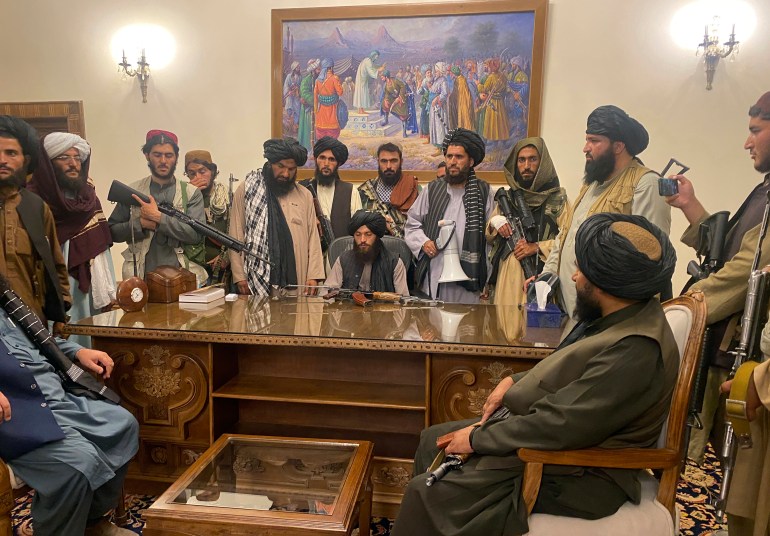Since the withdrawal of US-led foreign troops from Afghanistan two years ago this month, Jawad says the dangers he faced in his homeland over his past work as a logistics contractor for the United States military multiplied.
But despite the increased threat under the country’s new Taliban government, his seven-year effort to receive a special US visa for Afghans who directly supported American forces appears to have stalled – and Jawad says hope has turned to disappointment.
“I accept that I’m not the only person who is in the same boat. I have colleagues and know other people who are waiting this amount of time or even longer,” he told Al Jazeera through an interpreter in a phone interview from a village outside of Pakistan’s capital, Islamabad.
“But we were there and we helped the Americans when they needed our help. And now it is time that I ask for their help in getting me out of this situation”.
The 30-year-old – who, like many people who spoke to Al Jazeera for this story, asked to only use his first name for fear of retaliation – is among hundreds of thousands of Afghans whose lives have been marked by two years of separation, uncertainty and fear since US forces withdrew from Afghanistan at the end of August 2021.
While the West’s exit from the war-torn country was hailed by members of some segments of Afghan society, for thousands more, the chaotic US withdrawal – and the Taliban’s takeover – left them with little hope for a future in their homeland.

Many, like Jawad, remain stuck in precarious states of suspension, either in the US or abroad. Even those who have found a level of physical safety continue to grapple with new challenges, and the trauma of having had to leave family members behind.
“In Afghanistan, I would hear of neighbours and other people getting dragged out of their homes in the middle of the night,” said Jawad, who fled to Pakistan with his seven-months-pregnant wife and their four-year-old daughter in late July.
They brought a single backpack with them. But Jawad said they had no other options. “What if they come after me?” he said of the Taliban. “What will happen to my wife and daughter if they were to do that?”
